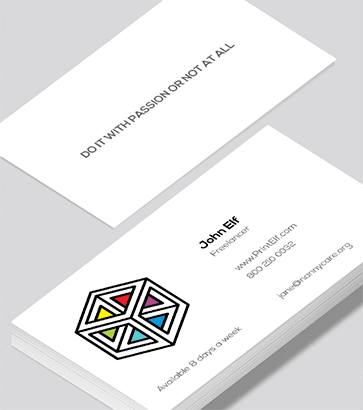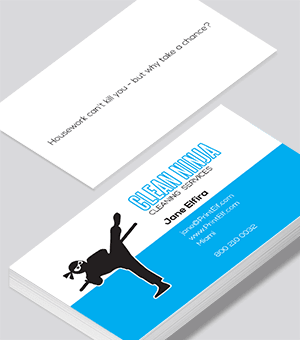Freelancing: Exploring Advantages and Rewards
Freelancing, once considered an alternative career choice, has gained significant traction in recent years. The rise of the gig economy, fueled by advances in technology and changing work dynamics, has provided individuals with the opportunity to embrace a flexible and autonomous way of earning a living. In this essay, we will delve into the world of freelancing, examining its advantages and rewards while acknowledging the disadvantages that come with this career path.
Advantages of Freelancing
- Freedom and Flexibility
One of the most alluring aspects of freelancing is the freedom and flexibility it offers. Freelancers have the autonomy to set their own schedules, allowing them to work when and where they are most productive. This independence is particularly appealing to those seeking a better work-life balance or those with personal commitments that require flexible working hours.
- Diverse Opportunities
Freelancing offers a vast array of opportunities across numerous industries and professions. Whether you are a writer, designer, programmer, marketer, or consultant, there is a demand for freelancers in virtually every field. This diversity allows individuals to explore their passions and leverage their skills in a wide range of projects.
- Income Potential
The potential for higher income is a compelling advantage of freelancing. Freelancers can set their own rates and have the opportunity to earn more than they would in a traditional 9-5 job. This financial incentive motivates many to pursue a freelancing career, especially if they can secure high-paying clients.
- Geographic Independence
With freelancing, your location is not a limitation. You can work from anywhere in the world as long as you have an internet connection. This opens up the possibility of traveling while working, relocating to a more affordable area, or simply enjoying a change of scenery.
- Skill Enhancement
Freelancers are constantly exposed to new projects and clients, which often require learning and adapting to different skills and tools. This continuous learning process can lead to personal and professional growth, making freelancers more versatile and adaptable in their careers.
- Building a Diverse Portfolio
Frelancers have the opportunity to build a diverse and impressive portfolio. The work they do for various clients and industries can serve as a showcase of their expertise and capabilities, making it easier to attract new clients in the future.
- Control Over Projects
Unlike traditional employment, where you may be assigned tasks that don't align with your interests or skills, freelancers have the power to select projects they are passionate about. This control leads to a higher level of job satisfaction.
- Work-Life Balance
Achieving a healthy work-life balance is challenging for many in traditional jobs, but freelancers have more control over their time, allowing them to prioritize their personal lives without the constraints of a fixed work schedule.
- Tax Benefits
Freelancers often enjoy tax advantages, as they can deduct various expenses related to their business, such as home office expenses, travel costs, and equipment purchases. This can result in significant tax savings.
Rewards of Freelancing
- Entrepreneurial Spirit
Freelancing encourages an entrepreneurial mindset. Freelancers must manage their businesses, handle client relationships, and market their services. This experience can foster valuable entrepreneurial skills that may be applied to future ventures.
- Personal Branding
Building a personal brand is essential for freelancers. This not only helps attract clients but also establishes a professional reputation in the industry. A strong personal brand can lead to recognition, trust, and a loyal client base.
- Work Variety
Freelancers often work on a range of projects for diverse clients. This variety keeps the work interesting and prevents monotony, allowing freelancers to constantly challenge themselves and expand their skill sets.
- Networking Opportunities
The freelance world offers numerous networking opportunities. Collaborating with different clients and colleagues can lead to valuable connections and referrals, which can be instrumental in securing future projects.
- Increased Creativity
Freelancers often need to come up with creative solutions to meet their clients' specific needs. This requirement for innovation and creativity can be personally rewarding and intellectually stimulating.
- Control Over Income
Freancers have the ability to control their income by setting rates, taking on additional work, or diversifying their services. This financial control can be empowering and lead to a more stable and lucrative career.
Disadvantages of Freelancing
- Income Inconsistency
While freelancing can offer the potential for high income, it often comes with income inconsistency. Freelancers may experience periods of feast and famine, where there are times of abundance and others of financial uncertainty.
- Lack of Job Security
Freelancers don't enjoy the job security that traditional employees have. They are vulnerable to losing clients or projects, which can lead to financial instability.
- No Employee Benefits
Freelancers are not entitled to employee benefits such as health insurance, retirement plans, paid time off, or sick leave. They must bear the responsibility of securing these benefits themselves, which can be costly and challenging.
- Administrative Burden
Freelancers are responsible for managing their businesses, which includes administrative tasks like invoicing, bookkeeping, and tax filings. These responsibilities can be time-consuming and detract from billable work.
- Client Acquisition and Retention
Freelancers must continually invest time and effort into finding and retaining clients. The competition can be fierce, and building a client base requires marketing, negotiation, and relationship management skills.
- Isolation
Freelancers often work in isolation, which can lead to feelings of loneliness and a lack of camaraderie with colleagues. The absence of a traditional office environment may also limit opportunities for social interaction.
- Unpredictable Workload
Freelancers may experience fluctuations in workload, with some weeks being overwhelming and others less busy. Managing these variations can be challenging, especially for those with financial obligations.
Conclusion
Freelancing is a career path that offers numerous advantages and rewards. It provides individuals with the freedom and flexibility to work on their terms, offers diverse opportunities, and has the potential for higher income. Freelancers can enjoy geographic independence, build a versatile portfolio, and have control over the projects they undertake. The lifestyle also promotes work-life balance and tax benefits.
While freelancing is an attractive career choice, it is not without its disadvantages. Income inconsistency, lack of job security, and the absence of employee benefits can be challenges. Freelancers must also manage administrative tasks and constantly work on client acquisition and retention. Isolation and unpredictable workloads can also be drawbacks.
Ultimately, the decision to pursue freelancing depends on individual preferences, goals, and circumstances. For those who thrive in an entrepreneurial and autonomous environment, the rewards of freelancing can outweigh the disadvantages. The key to a successful freelancing career lies in understanding these pros and cons and taking steps to maximize the advantages while mitigating the disadvantages.









